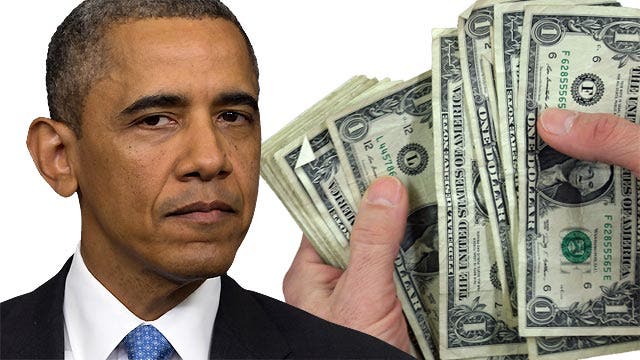"One reason that action to limit growing income inequality in the United States is difficult is that the growth in inequality is not a simple picture. Old-line leftists, if there are any left, would like to make it a single story—the rich becoming richer by exploiting the poor. But that's just not a reasonable picture of America in the 1980s. For one thing, most of our very poor don't work, which makes it hard to exploit them. For another, the poor had so little to start with that the dollar value of the gains of the rich dwarfs that of the losses of the poor. (In constant dollars, the increase in per family income among the top tenth of the population in the 1980s was about a dozen times as large as the decline among the bottom tenth.)"
The above is a quote from a book published in 1990. The author is a well-known economist. Question: What is that economist’s name? Hint: he won the Nobel Prize in economics in 2008 and writes a regular column and blog for the New York Times.
That’s right. Those words were written by none other than Paul Krugman.
I quote this paragraph, not to embarrass him, pleasurable as that is, but to make a more serious point. It is this: the income inequality in the United States today cannot be explained by rich people exploiting poor people.
[pullquote]
- Obama is 100% right about inequality
- Why won’t Obama own up to the terrible human toll of his policies?
- To fix income inequality, fix the US economy
- Extended unemployment benefits don’t help the economy or unemployed
- Marriage must be part of income inequality debate
- What Obama doesn’t get about income inequality
And the reason today is the same one Paul Krugman gave in 1990: the dollar value of gains to the “rich” (that is, to high-income people) dwarfs the losses of those with low income. Moreover, the good news is that, with the possible exception of the recent recession and slow recovery, those with low income did not typically lose.
So why has inequality increased? What Krugman said then is also true now: it’s not a single story. There are multiple causes.
One important cause is the increased skill levels of people at the top end.
Another important cause is the break-up of families through divorce.
When two lower-middle-class adults get divorced, both will see a decline in household income.
All other things equal, that will increase income inequality.
But that doesn’t mean they’re worse off. If both partners wanted the divorce, they’re better off even though their incomes are lower.
We economists are often accused of measuring well-being by income. But actually we’re more careful than most at not making that mistake.
And that brings us to another issue: why do we care about income inequality? The answer is that most people don’t care.
As well they shouldn’t. Because what matters is not whether inequality increases but whether people of all income levels are doing better. If your income is already higher than mine, and yours doubles, I don’t care as long as my income increases too, even if it increases less than yours did.
Many people assume that when income inequality increases, the rich get richer and the poor get poorer. But what was true until the last recession is that the rich got richer and the poor got richer, but at a slower rate than the rich. The real income, that is, income adjusted properly for inflation, of people in every part of the income distribution increased.
That’s easiest to see by comparing decades. What was in the households of middle class families in the 1970s, for example, is now in the households even of families officially labeled as poor: refrigerators, washers, dryers, color televisions, etc. Moreover, no one had cell phones in the 1970s. Now even many poor people have smart phones.
Bottom line: If we’re worried about poverty, then we should focus on poverty, not income inequality.

